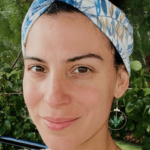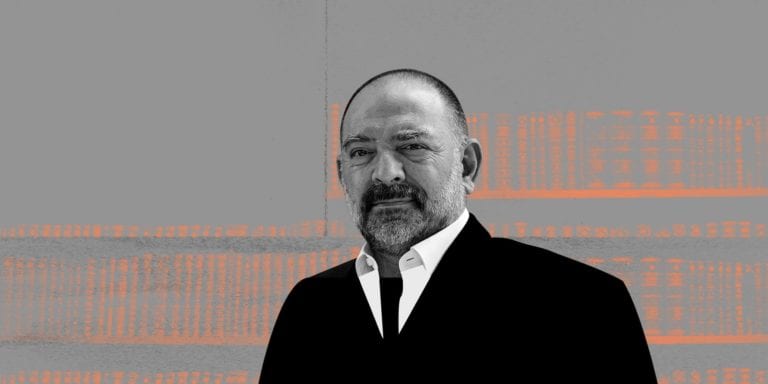The assassination of Lokman Slim on the six-month commemoration of the Beirut Port explosion is the latest reminder that in Lebanon, while trauma is cumulative and gratuitous, healing is forbidden. The country is enduring a staggering tally of traumas both in scope and breadth: abuse of every aspect of living at a shameless intensity.
What binds these traumas is that they are designed, individually and collectively, to keep us in fear while nursing wounds rather than tapping into the full potency of our minds, bodies, and communities.
Too frequently, gruesome displays of power remind us that we can be subjected to an endless scrambling for our basic securities. The current financial crisis plugs into a dizzying history of corruption. The port explosion plugs into a protracted legacy of warfare. Lokman’s assassination plugs into a long-favored strategy of eradication. The murder of one person is a warning to all, a stern reminder that we should not act free, let alone aspire to the luxury of healing.
As a clinical psychologist, I often treat trauma. Understanding the process of healing helps us understand why it is forbidden. It typically involves three phases.
In the first, Safety and Stabilization, we learn to achieve and maintain emotional and functional steadiness.
In the second, Remembrance and Mourning, we process the facts, emotions, and meaning of trauma. We grieve the impact of trauma and make sense of it in a way that restores our personal and communal, or even national, narrative arcs. We move from trauma-induced paralysis towards growth.
Finally, in Reconnection we use our newfound perspective and agency to grow from and beyond the trauma, plugging our lived personhood into a broader sense of community and purpose.
All of this is forbidden, because fear and insecurity are the oldest, crudest weapons of control. Keeping us injured and fearful not only strips us of the stamina and optimism to disrupt but, ironically, can produce gratitude when basic amenities are provided, and basic liberties respected.
And perhaps we collude with this: in our desperation for basic assurances, we cling to our footing once we have found it. We project onto it glimmers of the normalcy we crave. In our yearning for steadiness, we keep docile and adopt a business-as-usual attitude: essentially, the psychological version of a hazmat suit. We dissociate from the crushing framework that produces our overly-anxious attachment to “normalcy” in the first place, allowing oppression to roar on, so that in some hidden niche within it, we may have a shot at eating and working and loving.
Citizen paralysis is also enforced by the trauma-amnesia pendulum working its hypnosis since the civil war of 1975-1990. Fifteen years of atrocities were exempt from official documentation and forgiven with a sweeping amnesty law in 1991. This unnatural, unconscionable silence safeguards warlords from culpability as well as dissent.
Trauma, eternally unresolved, intimidates our nervous systems into tribal self-protection plans that involve the very warlords who author the damage. It is no coincidence that several of our slain intellectuals, Lokman Slim and Samir Kassir in particular, were also dedicated to accessing the facts of the civil war and restoring them to public consciousness – undertakings critical to the phase of Remembrance and Mourning.
Our advancement to Remembrance and Mourning is especially threatening, because the oligarchy rules by dictating the narrative and meaning of past and current events. Various political factions even benefit from peddling warring narratives: the lack of a sober, coherent understanding of facts naturally precludes individual and communal organization in light of such facts.
Indeed, when people have the option of leaning on scientific, impartial sources to process facts independently, leaders become vulnerable to accountability. This may be why they are deadly allergic to competently investigating crime. They lose their godlike mystique. People outgrow the pretense of their leaders to grow into their own selves and into a greater sense of citizenry – which would mark the final phase of post-traumatic healing.
Of course, asking for our right to heal from those whose chief currency is violence, and whose idea of dialogue is subjugation, is a tall order. Perhaps our very conceptions of what life is and what makes it precious are too radically different to begin with. But I insist on this request because each effective reminder that healing is forbidden is an even more effective reminder that healing is necessary. And one thing is certain: we are holding those who trade in oppression accountable. Not only for the trauma incessantly inflicted, but for the healing chronically denied, the shameless looting of human and communal potential. And when Remembrance and Mourning does come, we will absolutely remember; we have done so much of the mourning already. And we will make sure that history, too, remembers. That it remembers Lokman and those who died before him for the freeing freedom of their minds, and that it remembers those who killed as those who were most afraid; as those who were least free.
Read Also:







